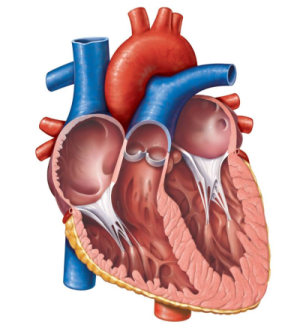Ornish Therapy
 Overview
Overview
This type of therapy is a combination of several natural therapies which are used for preventing and treating heart disease. Developed by Dean Ornish, M.D., a physician who believed that heart diseases can be prevented and even reversed, the Ornish Therapy is a combination of meditation, yoga, moderate exercise, group support sessions and an ultra-low-fat diet.
History of Ornish Therapy
Ornish Therapy was introduced in 1977 by Dean Ornish, who at the time was a young medical student at Baylor College of Medicine in Houston. When he told his professors he believed that Nature's cures might be able to reverse heart disease, they laughed at him. They insisted heart disease cannot be reversed. They believed the progression of heart disease could be slowed with bypass surgery and drugs that reduce cholesterol in the blood.
Those same professors, as well as cardiologists from around the world, no longer laugh at Dean Ornish and his beliefs. Dr. Ornish is now an assistant clinical professor and an attending physician at the University of California's San Francisco Medical Center. He is also president of the Preventive Medicine Research Institute in Sausalito.
Three different landmark studies show that Dr. Ornish's natural therapies successfully reversed heart disease. This therapy does not cure heart disease - but it does open clogged coronary arteries, increase blood flow, and reduce chest pain. It also allows those people who are crippled by heart disease to resume normal lives - and all for a fraction of the cost of bypass surgery and other high-tech treatments that may not accomplish as much as Ornish Therapy.
How Ornish Therapy is Practiced
Using month-long studies, Dr. Ornish had study patients quit smoking, take daily walks, practice meditation and yoga, and participate in group discussions about personal issues and heart disease. For the most part, those using this therapy do not use lipid-lowering drugs. The groups also ate a vegetarian diet limited to 10 percent of calories from fat. The diet for these studies permitted no red meat, no chicken, no fish, no dairy products, no nuts, no coffee and no chocolate. The diet consisted of beans, whole grains, fresh fruits and vegetables.
After just a few days, most of the participants in the study had decreased chest pain. At the end of 30 days, many were pain free and sophisticated tests showed they had increased blood flow to their hearts.
While some physicians believe the diet is nearly impossible to follow, Dr. Ornish disputes that. The results are astonishing. One patient who has been on the Ornish program for over four years has demonstrated gratifying results. After one year, this patient's chest pain disappeared. His cholesterol dropped from 3,120 to 145, and the blood flow to his heart increased by 20 percent. After four years on Ornish Therapy, the patient's blockage of his coronary arteries dropped from 52 percent to just 13 percent.
Dr. Ornish claims to have letters from people from around the world who have read his book and added his therapy to their lives. They claim to have experienced a drop in their cholesterol levels and in their chest pain.
Ornish Therapy Research
A study conducted in 2003 reported that individuals with coronary heart disease who participated in the Ornish program had greater improvements in their cardiovascular disease risk factors at milestones of both three months and six months than those patients who participated in more traditional rehabilitation and those who did not partake of any type of program for their condition.
Dr. Ornish's Two Diets
Some people believe Dr. Ornish's original diet was similar to that of Nathan Pritikin in the 1970s. Pritikin's diet was developed in order to combat heart disease. Both of these diets utilize foods which are very low in fat but are still filling. They include high-fiber grains and legumes (peas and beans). The Ornish diet does not allow intake of non-fat dairy foods and only allows refined or processed foods in moderation.
Two diets developed by Dr. Ornish are available and have Dr. Ornish's stamp of approval: The Prevention Diet and the Reversal Diet. The Prevention Diet is for those who do not have heart disease but are worried because their cholesterol levels are above 150. The Reversal Diet is for those people who have heart disease and would like to reverse its effects and attempt to lower their risk for future heart attacks.
What to Expect
People who are not dedicated to adhering to such a strict diet will find it difficult to maintain. However, the results can be very gratifying for those who are prepared to follows its guidelines. There is no restriction on caloric intake so long as the individual only consumes the recommended foods.
Adverse Reactions
There are no known adverse reactions to such a diet. Those with serious heart or other health conditions should always consult a professional health care practitioner before undertaking any new diet or exercise program.
References
- Bratman, S. The Alternative Medicine Ratings Guide: an expert panel rates the best treatments for over 80 conditions, Prima Health A Division of Prima Publishing (1998)
- Brown, L. Alternative Medicine, NTC/Contemporary Publishing (1999)
- Deepak Chopra, M.D. Alternative Medicine: The Definitive Guide, Celestial Arts (2002)
- Nancy Allison. The Illustrated Encyclopedia of Body-Mind Disciplines, The Rosen Publishing Group (1999)
- Servan-Schreiber, D. The Encyclopedia of New Medicine: Conventional & Alternative Medicine For All Ages, Rodale International Limited (2006)
Posted in Ornish Therapy
Ask a Question Or Join a Discussion


